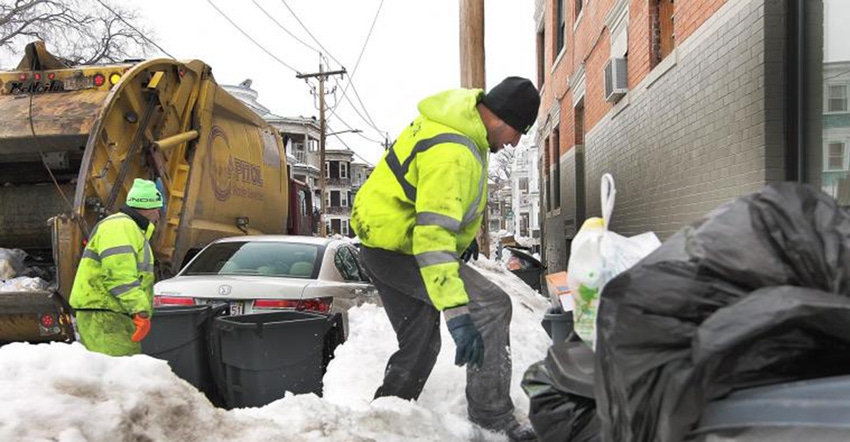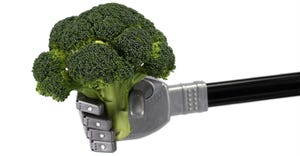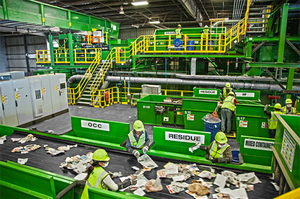Starting sometime in the mid-1980s and lasting about two decades, one of the hottest issues in solid waste management was whether local governments and waste authorities could require haulers to transport locally generated waste to specified processing and disposal facilities. The tactic was commonly referred to as “flow control.”
July 7, 2022

Lawful designation has two hurdles. First, does state law substantially limit or prohibit local officials from regulating this aspect of integrated solid waste management? If so, one need not go further. Flow control was unattainable. If, however, governments were not so restrained, then, second, does the local measure discriminate in favor of in-state interests at the expense of out-of-state interests in violation of the Commerce Clause of the U.S. Constitution?
The issue arrived for the first time at the U.S. Supreme Court in the early 1990s. The high court then ruled that an arrangement under which a flow control ordinance guaranteed a steady flow of waste to a private contractor’s transfer station amounted to discrimination against interstate commerce. It deprived out-of-state waste processors from access to the local waste market. C&A Carbone, Inc. v. Town of Clarkstown, 511 U.S. 383.
Even after the Carbone decision, flow control litigation continued apace until a different scenario reached the justices. In 2007, the high court ruled that county ordinances requiring haulers to obtain permits to collect solid waste and then deliver the waste to processing sites owned by a state-created waste authority did not discriminate against interstate commerce where in-state private waste businesses were affected the same as out-of-state ones. United Haulers Association, Inc., et al. v. Oneida-Herkimer Solid Waste Management Authority, et al., 550 U.S. 330.
Following the latter ruling, flow control challenges by private haulers slowed to a trickle and within a few years all but disappeared from judicial dockets. Did the fade-away of these lawsuits represent acquiescence within the waste industry? Apparently so on a broad scale, but not everywhere it seems. A recent attempt by a Wisconsin hauler to press a Commerce Clause claim is notable for its intrepidness but predictable in its outcome.
Situated along the Mississippi River in Diamond Bluff, Wisconsin, Paul’s Industrial Garage, Inc. (PIG) had a thriving waste business for itself for many years. The company made roughly $200,000 per year, accounting for about 30% of its revenue, from trash collection across the river in Goodhue County, Minnesota. The County was using private haulers and waste processing facilities, including PIG, to handle its garbage. The company profited by charging customers to collect their waste and by charging other trash haulers a tipping fee at its landfill downriver in Hager City, Wisconsin.
That setup ended when the County passed an ordinance, in 2017, requiring all locally generated garbage to be transported to a city-owned plant in Red Wing, Minnesota, where the garbage is processed into refuse-derived fuel (RDF) and sold to Xcel Energy, a successor to Northern States Power Company. Xcel burns the RDF to make steam for its turbines that generate electricity.
PIG and other garbage haulers and processors sued the County and the city of Red Wing in federal district court, arguing that the ordinance violated the Commerce Clause of the U.S. Constitution in two respects. First, they argued that requiring all garbage to go to the city plant unfairly discriminates against out-of-state competitors. Second, they claimed that even if the County could lawfully require all garbage to go to a publicly owned plant, the County was exclusively selling a byproduct of that garbage to a private, in-state company at the expense of out-of-state haulers and processors.
With no key facts in dispute, U.S. District Court Judge David S. Doty granted summary judgment to the defendants. He reasoned that because PIG could not turn refuse-derived fuel into electricity, its situation is not similar to Xcel’s and therefore it can't validly claim any interference with its interstate business. He also noted that even if PIG had the ability to convert refuse-derived fuel into energy, it would still lose under the United Haulers decision.
On appeal, the United States Court of Appeals for the Eighth Circuit upheld his ruling for pretty much the same reasons:
“[The Commerce Clause] doesn't prohibit differential treatment of companies that perform different services, because any notion of discrimination assumes a comparison of substantially similar entities,” said the appellate panel. “Thus, in the absence of actual or prospective competition between the supposedly favored and disfavored entities in a single market there can be no local preference. * * * [T]he fatal flaw [is that] PIG and the other appellants do not allege that they are able to convert garbage into refuse-derived fuel, nor do they allege that they have the ability to burn refuse-derived fuel to create electricity.”
Paul’s Industrial Garage. Inc., et al. v. Goodhue County, Minn., et al., No. 21-2614, 8th Cir., May 27, 2022.
About the Author(s)
You May Also Like




